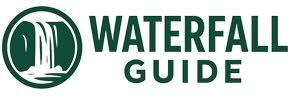Paddling to the Sand: Kayaking Kaneohe Bay’s Living Reef
A calm paddle to a living sandbar—snorkel, stand, and soak in Kaneohe Bay’s reef life.
The sandbar appears at first like a mirage — a pale smear in the blue that solidifies into shallow water and sun-warmed sand as you steer closer. On a calm morning the bay feels conspiratorial: wind eases, a few clouds hang like punctuation over the Koolau range, and the water raises a quiet shoulder that urges you forward. Your kayak cuts through the mirror, pedals of fish flicker beneath the hull, and the reef’s colors bloom with each shallow stroke. This is Kaneohe Bay, and the sandbar — Ahu o Laka — is its invitation: a place to get out, stand in knee-deep turquoise, snorkel over sunken coral islands, and listen to the ocean recompose itself.
Trail Wisdom
Go early for glassy water
Morning hours usually mean lighter wind, clearer water, and easier paddling to the sandbar.
Bring reef-safe sunscreen
Apply before you launch and reapply as needed to protect both your skin and the coral below.
Pack a dry bag
Keep keys, phone, and snacks dry in a small dry bag you can secure to the kayak deck.
Buddy up before you leave
Paddle with at least one partner or stay within sight of other groups; the bay is sheltered but conditions can change.
Local Knowledge
Hidden Gems
- •Paddle to quieter patch reefs on the bay’s leeward side for better snorkeling
- •Find early-morning shorelines near Lanikai for coastal birdwatching after your paddle
Wildlife
Green sea turtle (honu), Reef fish such as surgeonfish and butterflyfish
Conservation Note
This area relies on reef-safe practices — use biodegradable sunscreen, avoid anchoring on coral, and follow local guidance to minimize impact.
Kaneohe Bay hosts traditional Hawaiian loko iʻa (fishpond) engineering and long-standing local stewardship practices tied to the bay’s resources.
Seasonal Guide
spring
Best for: Calm mornings, Snorkeling clarity, Fewer crowds
Challenges: Occasional spring swells, Variable winds
Spring brings mild weather and improving visibility; pick early starts for best conditions.
summer
Best for: Warm water, All-day rentals, Family outings
Challenges: Stronger midday sun, Higher visitor numbers
Summer is ideal for long days on the bay — watch sun exposure and try to go early to avoid afternoon wind.
fall
Best for: Stable water, Good visibility, Lower winds
Challenges: Turning trade winds some afternoons, Tidal shifts affecting sandbar size
Fall often provides steady conditions and excellent snorkel clarity; check tide tables to time the sandbar landing.
winter
Best for: Dramatic coastal views, Whale season sightings (offshore)
Challenges: Occasional large swells, Windier afternoons
Winter can be livelier; stick to mornings and heed local guidance about swell and currents.
Photographer's Notes
What to Bring
Snorkel Mask & FinsEssential
Essential for exploring the shallow reefs and getting close to marine life.
Dry Bag (10–20L)Essential
Protects phone, camera, and snacks from splashes and brief capsizes.
Reef-Safe SunscreenEssential
Protects skin and helps preserve coral health — apply before launch.
Water Shoes
Useful for moving across shallows and landing on the sandbar without stepping on coral.
Common Questions
Do I need prior kayaking experience?
No — this rental is beginner-friendly and includes a quick demo and safety briefing in Kailua before launch.
What should I bring for snorkeling?
Bring or rent a mask and snorkel; fins are useful for mobility but optional. A waterproof bag for your camera is recommended.
When is the best time to visit the sandbar?
Mornings at mid- to low-tide typically offer the calmest water and the best sandbar exposure; check tide charts with your outfitter.
Is the reef safe to touch or walk on?
No — coral is a living organism. Avoid touching or standing on it to prevent damage and injury.
Are there restrooms or food nearby?
Meeting and gear pickup are in Kailua where restrooms and local food options are available; the harbor area may have limited facilities.
What happens if the wind picks up?
Guides will brief you on re-entry and return strategies; if conditions change, stay calm, paddle toward shelter, and work with your group.
What to Pack
Snorkel set (for reef viewing), Reef-safe sunscreen (protects you and coral), Dry bag (keeps essentials safe), Water and snacks (for energy during rental)
Did You Know
Kaneohe Bay contains one of the largest barrier reefs in the Hawaiian Islands, and the sandbar known as Ahu o Laka is a shallow reef formation that becomes exposed at lower tides.
Quick Travel Tips
Book morning slots for calmer water; apply reef-safe sunscreen before arrival; bring ID and cash/card for rentals and snacks; check tide charts with your outfitter.
Local Flavor
After your paddle, head back to Kailua for a local bite—pick up a poke bowl or stop by Kalapawai Market or Boots & Kimo's for island-style food and a chance to compare tide stories with locals.
Logistics Snapshot
Closest airport: Daniel K. Inouye International Airport (HNL); Meeting point: Kailua storefront; Driving distance to launch: ~20 minutes; Cell service: intermittent on the bay—expect good coverage near shore; Permits: none required for recreational rentals.
Sustainability Note
Kaneohe Bay’s reef is fragile — use reef-safe sunscreen, avoid touching coral or wildlife, and follow your outfitter’s guidance to minimize disturbance.
Continue Reading

Pack, Paddle, Repeat: Multi-Day Kayak & Beach Gear Rentals on Oahu
Keep your travel light and your days full: multi‑day kayak and beach gear rentals on Oʻahu let you paddle at dawn, snorkel at noon, and lounge on sand without hauling equipment. Delivery across the island makes coastal exploration effortless.
Honolulu, Hawaii

River Running in the Kahana Rainforest: A Four‑Hour Paddle Into Oʻahu’s Lush Backcountry
Leave the beach crowds and follow a freshwater ribbon into Kahana Valley. This four‑hour river kayak rental delivers rainforest shade, mountain views, and a gentle introduction to Oʻahu’s inland waterways.
Kailua, Hawaii

